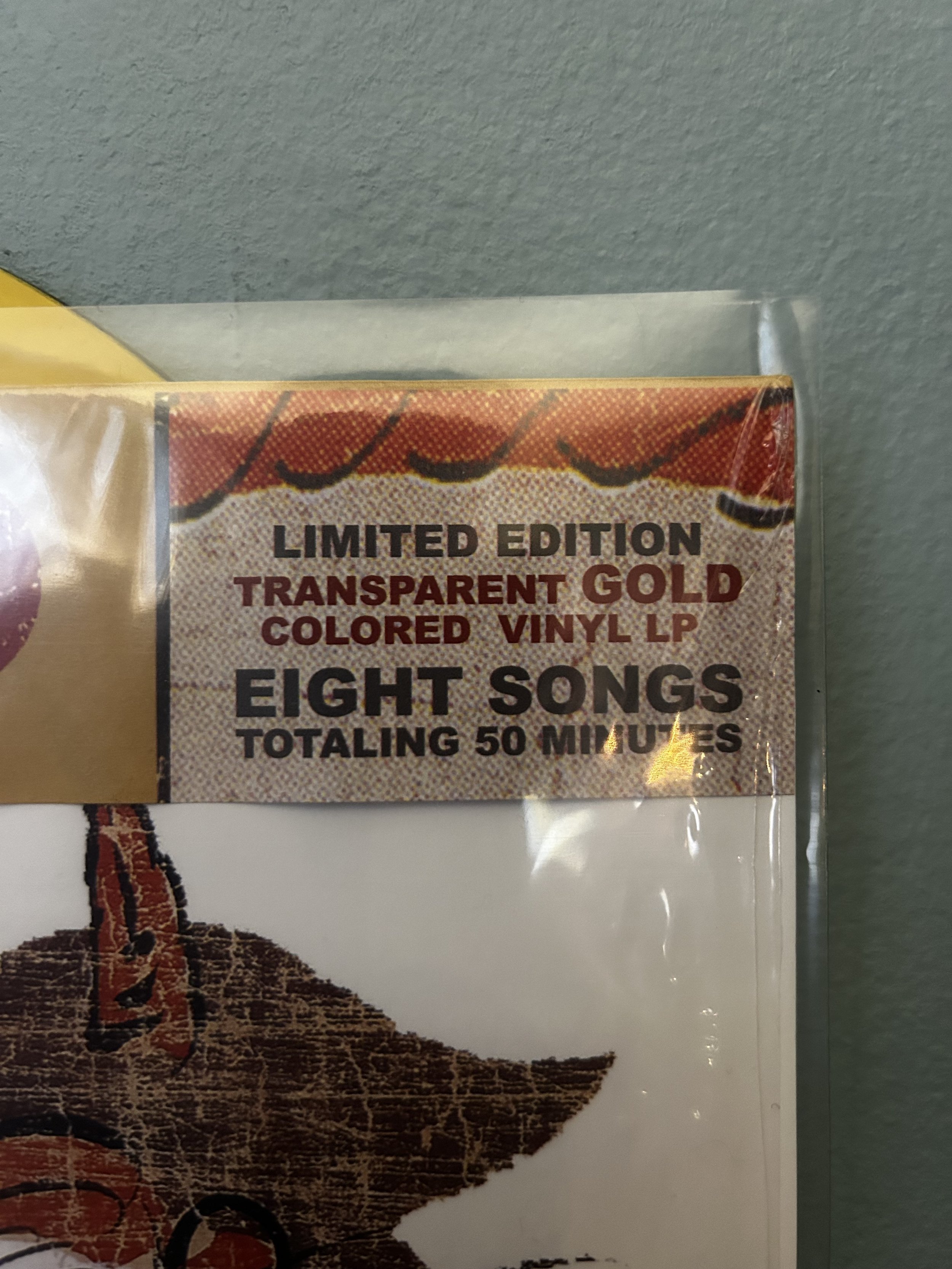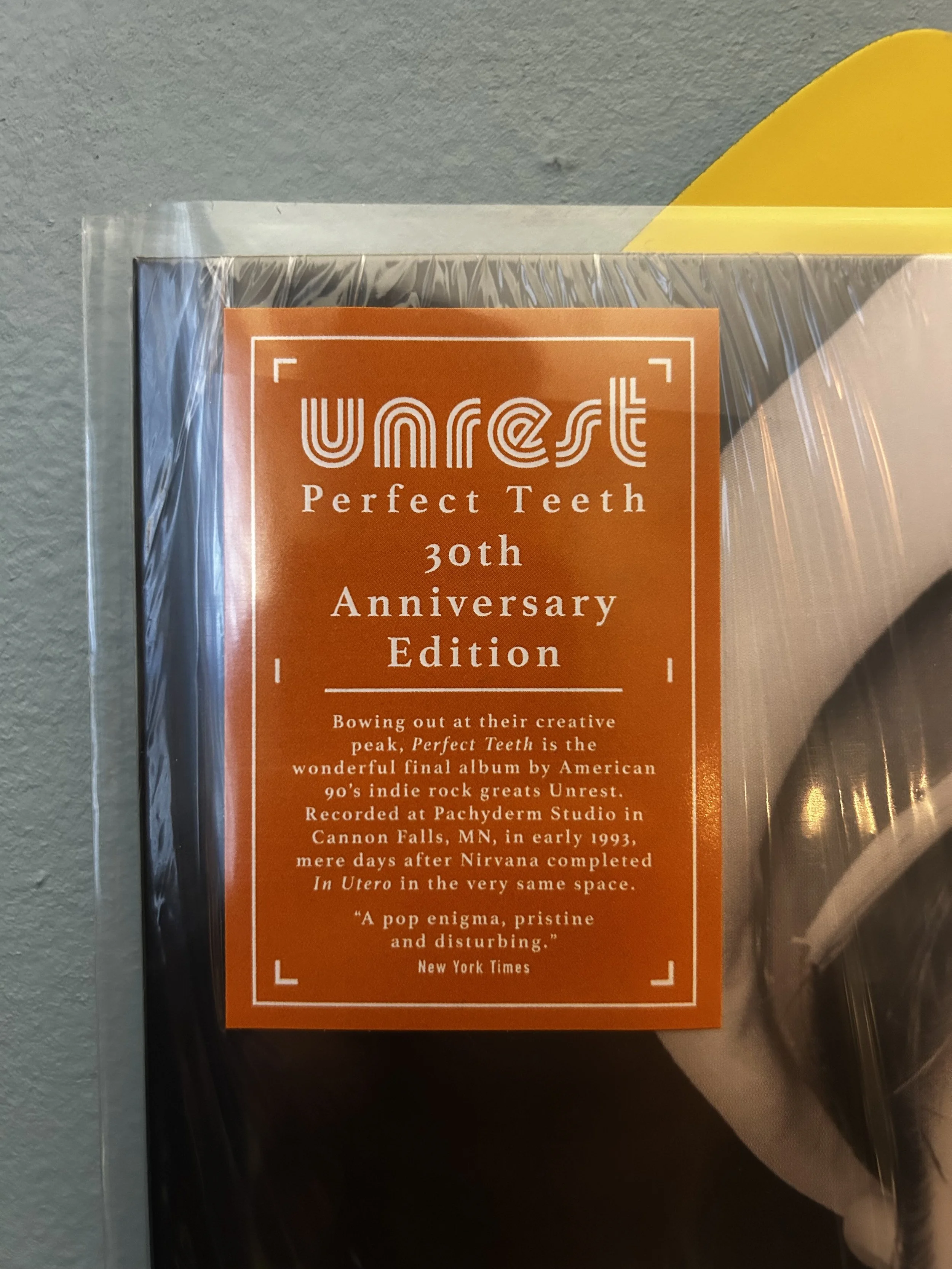What’s (Re)New?: KoenjiHyakkei, Unrest, Dome
Koenji Hyakkei
Angherr Shisspa (Revisited)
SKiN GRAFT Records
Reissued: 1/24/25
Do you know Zuehl? Do you know Magma? Do you know Tatsuya Yoshida?
I didn’t.
I’m failing to remember if it was 2oo5 or 2006, but it was around then that I became aware of the Japanese progressive ensemble Koenji Hyakkei via the band’s 2005 LP, Angherr Shisspa. At the urging of a friend of mine, a friend whose music acumen is encyclopedic, enviable, and as reliable as death and taxes, I acquired a CD copy of Angherr Shisspa without benefit of preview and kept it on repeat in my car’s stereo for weeks after peeling off the cellophane.
Starting in 1991, Koenji Hyakkei, led by progressive drummer Tatsuya Yoshida (also of the unbridled jazz fusion duo, Ruins), is a masterfully composed, albeit wildly aggressive, act conceived as a tribute to the French progressive band Magma, whose own identity is verbally tied to a language authored by the Magma founder, Christian Vander. That language is called Zuehl and its basis in genre is identified by neoclassical arrangements and sophisticated progressive and jazz fusion musical vernaculars. I’m not bilingual, but I’ve heard enough Japanese spoken aloud that I knew Koenji Hyakkei weren’t expressing song via their native tongue(s), so it was clear that this was something I hadn’t heard before.
Up to the point when I listened to Angherr Shisspa for the first time, my only immediate points of reference that were top of mind were Frank Zappa and Jesus Christ Superstar, and I wasn’t aware of Zeuhl music or Magma. So, the rabbit holes were plentiful and deep. In the meantime, as I was no stranger to prog rock (Yes) or jazz fusion (The Mahavishnu Orchestra), the combination of orchestration and audible lack of polish put Koenji Hyakkei in a different class in my mind. It was like punk prog, a sensory assault that exhibited high musical virtuosity and ability while also expressing some level of force and relentlessness. The fact that I found this reissue, retitled Angherr Shisspa (Revisited) for its 20th anniversary, in the HARDCORE bin at my local record shop wasn’t shocking.
Angherr Shisspa is Koenji Hyakkei’s fourth album and was the band’s first to release in the U.S. The reissue I purchased is a transparent gold variant.
If I were ever asked (imagining an existence wherein my opinion on anything would garner interest or be taken seriously) which album one should begin their foray into the music of Fugazi, I would point them to the band’s last official LP, 2001’s The Argument. If questioned why, I would say that The Argument is a perfect final album, a lasting culmination of the band’s ever-evolving sound. Its rough edges are intentional and confident, every melody precise and beautiful. Its resonance begs one to know how the band got there. Applying that same logic, I decided to start listening to Unrest just in time to celebrate the 30th anniversary of the band’s last album, Perfect Teeth.
So, yes, I’m late to Unrest, though not unaware of their work. It happens that I’ve heard many singles over the years, but never a full album. Perfect Teeth was reissued by 4AD and Teenbeat, the label founded by Unrest member, Mark Robinson. A two-volume version of Perfect Teeth is available to purchase, but I found and picked up the single-LP.
Recorded in 1993 at Pachyderm Studio, Perfect Teeth capped off Unrest’s initial run, short reunion gigs and tours following in the mid- to late-2000s. Nirvana had completed recording In Utero at Pachyderm days before Unrest arrived to begin working on Perfect Teeth.
Accessible and caffeinated, Unrest’s combination of nerves and rapid guitar strokes harken back to college airwaves and mixtape delights, the alterna-youth cool with melody so long as an authentic lack of polish was audible. Hearing “Cath Carroll,” “Light Command” and “Make Out Club” now at 48 years of age makes me wish I’d known these tracks when they were new, their vigor splintery and wide-eyed… exuberant.
As the needle has dropped on this album quite a bit since acquiring it, I’ve wondered if any members of Sonic Youth had taken a cue or two from Perfect Teeth when they began writing the songs for Murray Street, some of its softer, more floating moments not too far removed from the sounds Robinson and Co. brought to be.
Dome
Dome 3 & Dome 4 (Will You Speak This Word)
Editions MEGO
Reissued: 2019
About a month ago, while visiting with friends in Manhattan, I ventured out to Rough Trade to acquire some 12” vinyl souvenirs. Doing my best to ensure that no corner of that store hadn’t been reviewed thoroughly, I was busily filing through the stacks when I happened upon reissued copies of 1, 2, and 4 by the Graham Lewis / Bruce Gilbert post-Wire project, Dome.
The fact that these albums had been reissued was a revelation, one I could only silently freak out about. I’d been wanting Dome’s 3 and 4 for a long time. I grabbed 4 (a.k.a., Will You Speak This Word) and made note to locate the elusive 3 when I returned home.
I became wise to Dome many years ago thanks to Henry Rollins and his ongoing stint as a radio DJ. Rollins played the song “Cruel When Complete,” a track from Dome’s 1 with vocals from Angela Conway of A.C. Marias. It’s a beautiful song, haunting and minimal. I was able to locate the Dome 1 & 2 CD compilation, issued by Mute Records / The Grey Area in the early 90s. I had a harder time finding 3 & 4.
In 2011, the Editions MEGO label issued a box set of Dome’s work titled, 1-4 + 5. The versions I’ve located are standalone reissues that were originally exclusive to the box set, made available in 2019.
Before temporarily disbanding in 1980, Wire’s celebrated three-album run of Pink Flag, Chairs Missing, and 154 essentially mapped out how punk rock’s demise and renewal would sound for decades to come, that initial burst of pioneering activity taking place within the span of four productive years. From that impressive foundation, for which they’d both had a hand in building, bassist Graham Lewis and guitarist Bruce Gilbert kept Wire’s creative and experimental momentum going with Dome, pushing further toward the avant-garde. While at times some of their ideas present as fragmented, albeit compelling, concepts or unedited sonic explorations, the Lewis / Gilbert combo generated some fascinating post-punk odds and ends.
Sincerely,
Letters From A Tapehead









